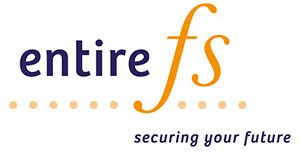You may have heard quite a bit about equity release already. Some of your contemporaries may even have used it to release money from their property and go on a trip round the world or to pay for some home improvements.
You may be wondering if you should do the same? But how do you know if it’s right for you? Your home is likely to be your biggest asset so it’s important to investigate it carefully. Unfortunately, the answer is not simple and will vary depending on your particular circumstances.
What exactly is it?
Equity release works by enabling you to access the money tied up in your home, either through a lifetime mortgage or a home reversion scheme. With the lifetime mortgage option, as the name suggests, you take out a mortgage which is secured against your property. It’s up to you whether you make repayments or let the interest roll up. The loan amount and any accrued interest is paid back when you die or go into long term care. With home reversion you sell all or part of your home in return for a lump sum or regular payments and have the right to continue living in the property until you die, as long as you agree to maintain it.
Would you be eligible?
You’d have to have a property worth at least £70,000 and be over 55 to go ahead with equity release.
What should you consider first?
If you have some savings or investments it may be best to use these before considering taking equity release. Carry out a review to make sure you’re taking all the state benefits you’re entitled to. Remember that if you have an outstanding mortgage, it will need to be repaid with the proceeds of the equity release.
On the plus side
Equity release allows you to stay in your own home so you don’t have to think about downsizing. The sum raised from equity release is tax free and won’t incur capital gains tax. It also provides you with easy access to a lump sum for home or garden improvements, travel, helping the family or any other way you choose to spend it.
But what about the effect on inheritance?
When you raise money through equity release, you get a lump sum or regular cash payments on the understanding that the scheme provider is repaid when you die. This usually means that your home has to be sold to pay the equity release mortgage and so your family will receive the remaining equity once the mortgage has been repaid. It’s also possible to ring-fence some of the value of your property as an inheritance for your family. The key thing is that the size of the debt to be repaid will not exceed the overall value of your home.
And what about the higher interest rates?
It’s important to be aware of how the interest rates work on equity release schemes. Even if rates are initially low, the way interest is charged on equity release means the costs can soon mount up. The plans can have “rolled up” charges, which means that interest compounds and so the overall debt increases quickly. With both high interest rates and longer life spans, the chances of the debt growing to exceed the total value of the property is increased. This could affect the amount of money that you’d hoped to leave to your children.
Sources
- https://www.saga.co.uk/magazine/money/property/equity-release/will-equity-release-affect-inheritance
- https://www.over50choices.co.uk/community/ashleys-blog/details/id/7895/is-equity-release-a-good-idea
- https://www.telegraph.co.uk/equity-release/mortgages/considering-equity-release-worried-inheritance-use-three-tricks/

